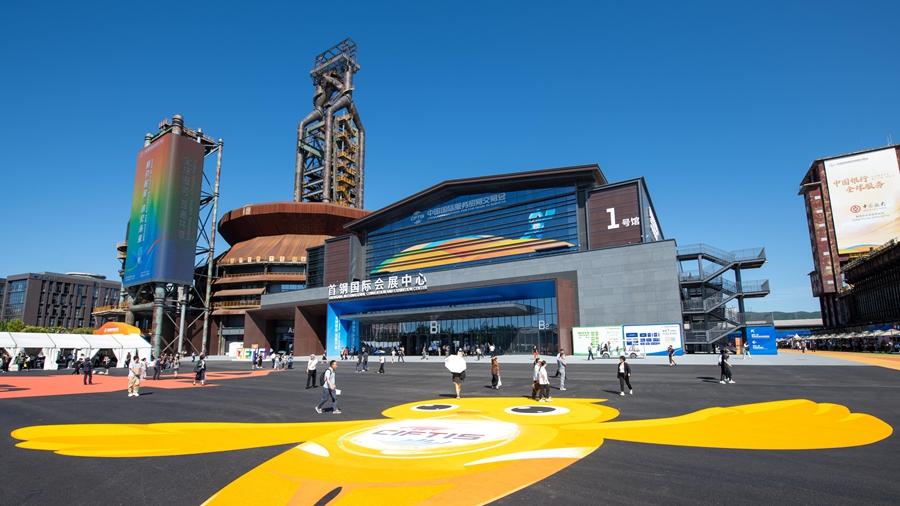EV industries of China, EU at crossroads as China stresses open cooperation
BEIJING, Sept. 19 (Xinhua) -- The trade dispute involving electric vehicle (EV) exports from China to the European Union (EU) continues to draw widespread attention, with just over a month to go before the EU reaches a decision regarding the definitive duties it plans to impose on Chinese EVs.
Over the past few days, Chinese Minister of Commerce Wang Wentao has been in Europe for discussions on the EU's anti-subsidy probe into Chinese EVs. This was on top of the more than 10 rounds of consultations already conducted between the Chinese and European working teams regarding the matter over the past few months.
On Wednesday, Wang chaired in Brussels the China-EU Electric Vehicle Industrial Chain Enterprises Roundtable, which was attended by leaders from nearly 30 Chinese and European companies as well as related industry association. Representatives at the meeting exchanged views on finding a proper solution to the EU's anti-subsidy case and continuing to deepen China-EU EV industrial chain cooperation.
Noting the high interdependence of the Chinese and EU automobile industries as a result of 40 years of fruitful industrial cooperation, Wang said the Chinese and European automobile industries "are at a critical crossroads" and that "open cooperation is the best option."
"In the face of the EU's anti-subsidy investigation into China's electric vehicles, China will continue its efforts to negotiate and resolve the issue until the last minute," he said.
TOUGH NEGOTIATIONS
The 27 EU member states are due to vote on the proposed final duties on Chinese EVs in the coming weeks, and there have been growing doubts about the EU's tariff plan, especially among countries hoping to attract Chinese investment.
Spain, which had voted in favor of imposing duties in the preliminary voting process, has had a change of course, saying that the EU should reconsider carefully its decision. Other countries, including Germany, Sweden, the Czech Republic and Hungary, as well as many European car companies, have also spoken out against the European Commission's decision to levy hefty tariffs.
During his meeting with Wang on Tuesday in Berlin, Wolfgang Schmidt, head of Germany's Federal Chancellery, said that Germany strongly hopes that the EU and China will properly resolve the case through dialogue and consultation, and that Germany always believes that imposing additional tariffs is not the solution.
On Monday, Italian Foreign Minister Antonio Tajani, during talks with Wang, also said that the European Commission should handle the case in strict accordance with the World Trade Organization (WTO) rules and relevant EU legal regulations to avoid causing disruptions to China-EU economic and trade cooperation.
These remarks show that there is still a desire to promote cooperation through talks and avoid the escalation of trade frictions, albeit some uncertainty.
According to analysts, the case has gone beyond the purely economic scope because it has become politicized, which greatly increases the difficulty of negotiations.
"The trade frictions China is facing are increasingly affected by political factors. Especially in some important industries, there are cases where some countries join forces to take measures against China," said Cui Fan, a professor at the University of International Business and Economics.
CHINA'S STANCE
China's Ministry of Commerce (MOC) said that China has the greatest sincerity in seeking to properly resolve differences through dialogue and consultation, and that it is determined to safeguard the legitimate rights and interests of Chinese enterprises.
"The EU's anti-subsidy probe case is complex and has a wide impact, and we need to look at it with a more calm mind," said Liang Ming, a researcher with the Chinese Academy of International Trade and Economic Cooperation under the MOC.
Liang said that China does not predetermine the outcome of the negotiations, believing that the country will not make compromises on major issues involving national and corporate interests.
Industry analysts say that the development of the EV industry requires globalization based on the comparative advantages of all parties, which accords with the laws of economy and industrial development.
In the face of the EU's anti-subsidy probe, the market will give its answer, said Tu Xinquan, dean of the China Institute for WTO Studies at the University of International Business and Economics.
The more complex and severe the development environment is, the more Chinese companies should enhance their awareness of opportunities and risks and firmly consolidate their advantages through sci-tech innovation and industrial upgrading so that they can prevail in the competitive international market, Tu said.
Photos
Related Stories
- China, EU hold constructive consultation on EV tariff disputes: China's Commerce Ministry
- German economics minister urges political solution to EV tariffs with China
- Chinese EV brands dominate Indonesian market in August
- EU tariffs on Chinese EVs raise trade war concerns
- Chinese automaker Changan debuts premium EV brand AVATR in Thailand
Copyright © 2024 People's Daily Online. All Rights Reserved.









